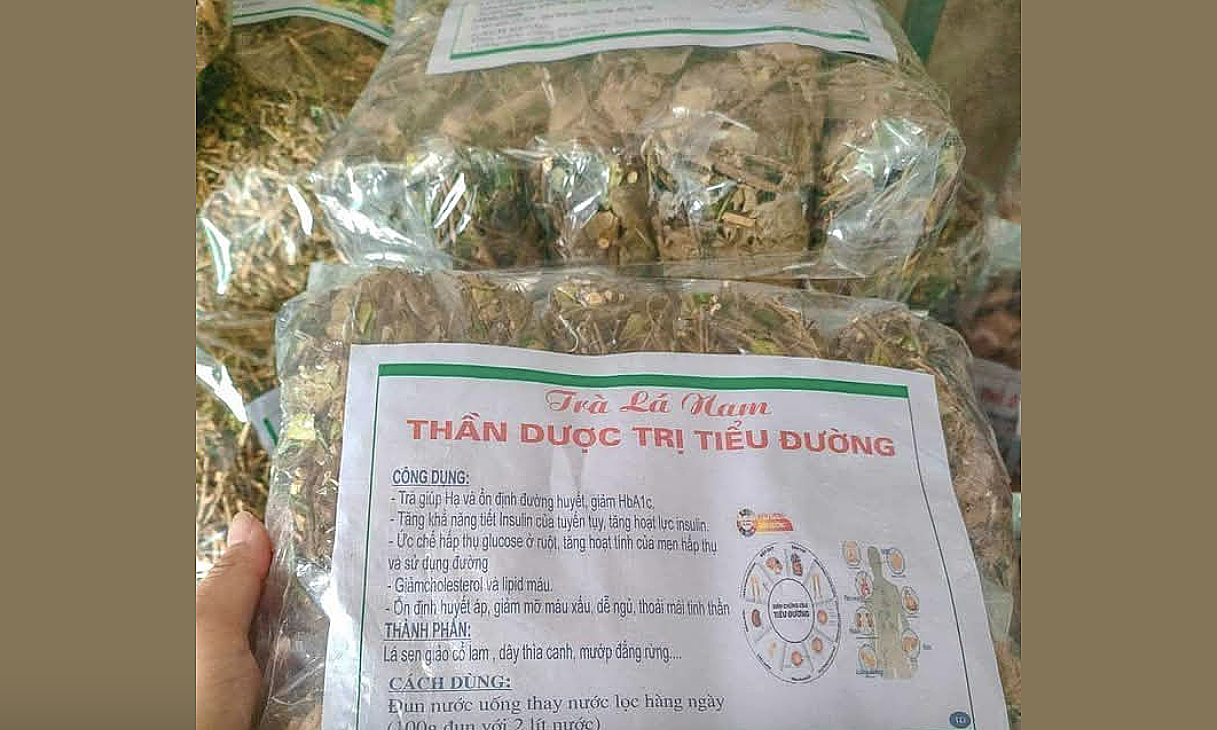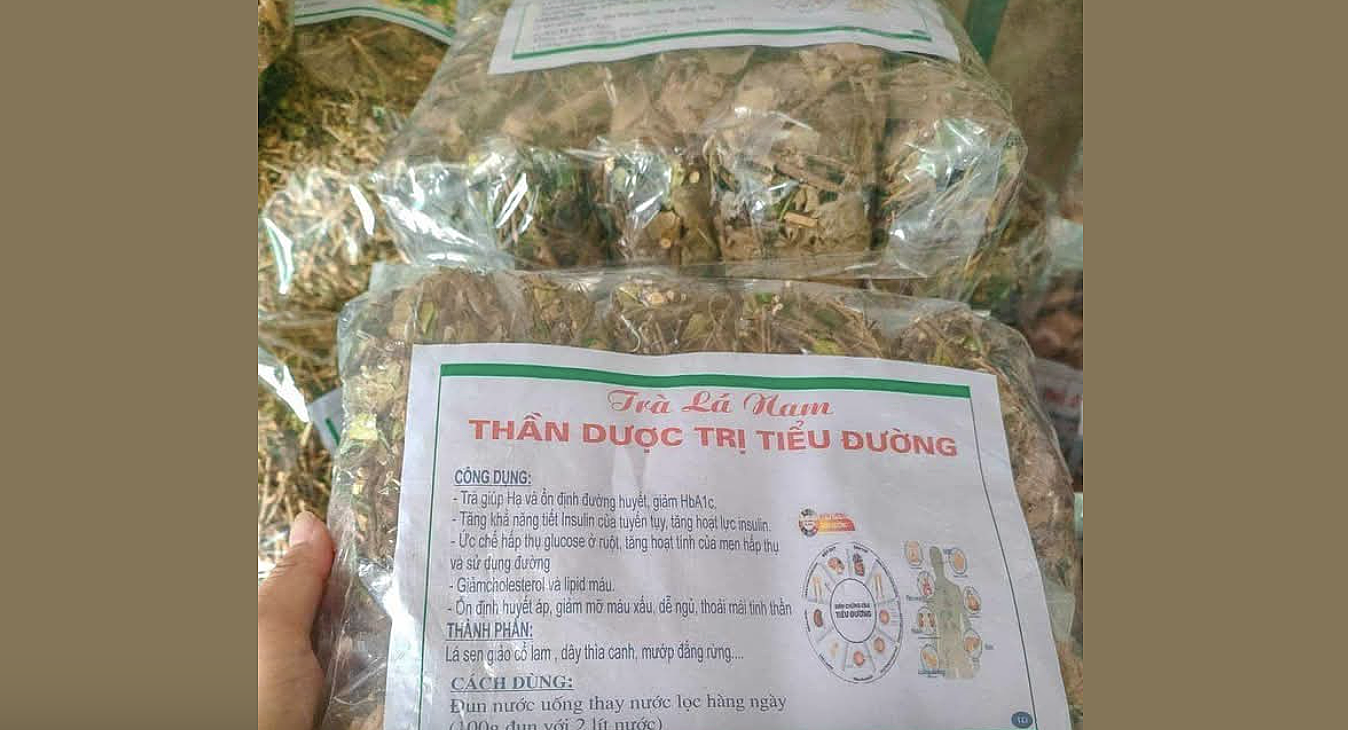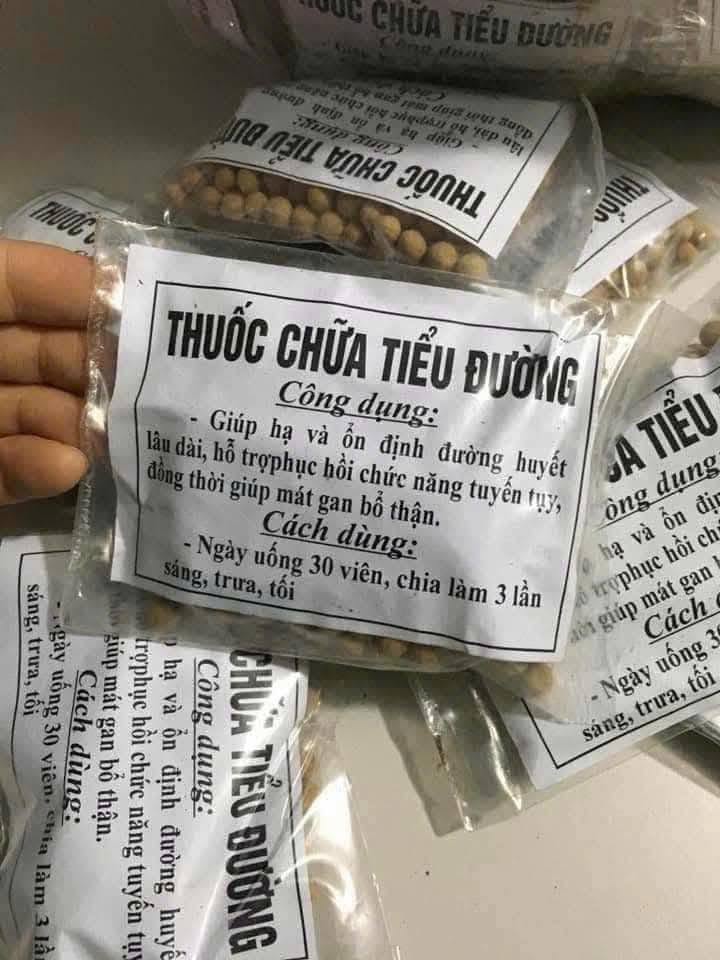
There is a growing incidence of diabetics being affected badly after using unknown "traditional remedies" advertised online, leading to life-threatening conditions.
A 59-year-old man was brought to the People's Hospital 115 in Ho Chi Minh City in June with respiratory failure and severe kidney damage after taking tablets containing phenformin, an active ingredient that was once used for diabetes treatment but was then banned in 1970s because of the high incidence of associated lactic acidosis occurring at therapeutic doses.
He was admitted in a stuporous state, unresponsive and with low blood pressure.
Test results revealed severe acidosis and kidney damage. Doctors had to intubate, provide mechanical ventilation and perform continuous dialysis just to save him.
According to his family, he had bought some medication advertised as "traditional remedies," which included a pack without a label.
Tests later revealed that the drug contained phenformin, a substance banned in Vietnam and worldwide since the 1970s.
A 54-year-old woman was admitted to the city's Thong Nhat Hospital after feeling lethargic and suffering from abdominal pain after taking a pill advertised as "a 3-generation traditional medicine for diabetes."
Again tests confirmed the presence of phenformin, and the patient suffered from severe metabolic acidosis, a complication that could lead to death if not treated promptly.
After three days of intensive treatment with resuscitation and dialysis, her condition improved gradually.
Her family revealed that she had been taking unlabeled pills from a plastic bag with unknown origins.
In Hanoi, a 67-year-old man fell into a coma after taking diabetes medication purchased online, and was brought to the 19/8 Hospital under the Ministry of Public Security.
The hospital sent a sample of the medicine to the National Institute of Forensic Medicine for testing, which confirmed the presence of toxins.
The patient had a long history of hypertension and diabetes. Previously he took medication prescribed by a doctor, but three months ago trusted some advertisements for "traditional medicine that cures diabetes completely" and began using it on his own.
Doctors had to provide mechanical ventilation, high-dose vasopressor medication and continuous dialysis.
After 48 hours the patient recovered and gradually improved.
These are just three of many cases requiring emergency treatment due to the use of illicit diabetes medication.
Duong Minh Tuan from the endocrinology and diabetes department at Bach Mai Hospital said cases of diabetes drug poisoning are not uncommon, and large hospitals handle many such cases, but some patients arrive too late to be saved.
 |
| A screenshot photo of a herbal tea that is advertised as " elixir" to treat diabetes that is sold online. |
According to a study by The Lancet, a U.K.-based medical journal, the global prevalence of diabetes has increased from 7% to 14% in just three decades, equivalent to more than 800 million people.
Vietnam has some seven million diabetics, over half of whom have cardiovascular, eye, nerve, and kidney complications.
The incidence rate among those aged 20-79 has tripled since 2000.
Alarmingly, 50% of cases are undiagnosed due to a lack of awareness or negligence. In this context, alarmingly, the online market for diabetes medication is rapidly growing.
Ngo Thi Kim Oanh of the University of Medicine & Pharmacy Ho Chi Minh City warns that many products falsely claiming to be "traditional medicine" are handmade, poorly packaged, not checked for quality, and are unregistered with the Ministry of Health.
A survey by VnExpress found that buying diabetes medication online is very easy.
Just a few seconds of searching for terms like "buy diabetes medicine," and users will find hundreds of thousands of results.
The medicines are sold in various forms -- powders, leaves, pills at various prices -- but their origins cannot be verified.
Customers simply choose the quantity, fill in personal information and payment details and receive the so-called medicines within a few days.
Advertisements often claim "From natural herbs," "No side effects," "Cured thousands of people," and "Completely treats diabetes."
Promotion is especially common on social media at places like "Diabetes Support Group" (50,000 members) and "Group Sharing Diabetes Treatment Without Hospital Visits" (250,000 members).
These products are often prepared by individuals without medical or traditional medicine expertise.
They often mix multiple ingredients randomly, leading to deadly health hazards.
The most dangerous substances are phenformin and glibenclamide, which are added to quickly lower blood sugar, deceiving patients.
Phenformin is particularly dangerous because it belongs to the biguanide class, with a mechanism similar to metformin but much more toxic.
This drug was used in the U.S. in the 1950s but was banned in 1973 after causing numerous deaths due to lactic acidosis.
Vietnam does not allow it either but phenformin is still clandestinely produced in tablet and powder forms and sold online.
People with diabetes are already at risk of cardiovascular, kidney and nerve complications, and when they use drugs containing banned substances, they face the risk of respiratory failure, hypotension, altered consciousness, and even rapid death.
Those with liver, kidney or other chronic diseases will experience even more severe complications.
Early symptoms of complications, such as fatigue, loss of appetite and abdominal pain, are usually underestimated, especially after a banned drug makes blood sugar levels drop instantly.
 |
| A screenshot photo of diabetes remedies sold online. |
Doctors say people with diabetes are often fatigued due to lifelong treatment, making them more susceptible to advertisements for "miracle cures."
Many people mistakenly believe that traditional herbal medicine is always safe and use it without supervision.
Oversight by authorities, meanwhile, remains weak, and most sellers operate informally, making them difficult to monitor.
Many products are promoted by celebrities and influencers on social media, and consumers are easily deceived.
Although e-commerce platforms have regulations, the actual monitoring remains lax.
Experts acknowledge the proven benefits of traditional medicines. Many traditional remedies have been shown to be effective and are approved for circulation.
However, people wishing to use traditional medicines should go to a reputed hospital or clinic, and not buy unregulated products online or from self-proclaimed herbalists.
Dr Tuan of Bach Mai Hospital says diabetes is a chronic condition that cannot be cured by a few pills with "herbal secrets."
Besides, using unregulated products can be life-threatening, he warns.
Patients should be cautious of online advertisements and not abandon verified treatment protocols, he adds.
Post a Comment for "Unverified diabetes remedies sold online pose huge health risks, including kidney failure"